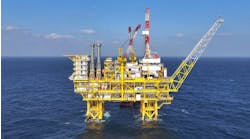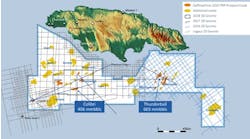Offshore staff
ABERDEEN, UK – Operating expenditure (opex) and unit costs/boe rose by 2% last year across the UK continental shelf (UKCS), according to the Oil and Gas Authority (OGA).
The findings are based on data collected from the OGA’s UKCS stewardship survey.
Last year’s opex totaled £6.9 billion ($9.07 billion). Although the period of sharp cost reductions appears to have passed, total operating costs are still 28% less than during the peak of 2014, the report found.
Other conclusions in the ‘Analysis of UKCS Operating Costs in 2017’ report are:
- Much of the operating costs were on fields in the central North Sea, although due to high levels of production, this region also had the lowest unit operating costs (UOC). Fields in the northern North Sea continued to have the highest UOC, while UOCs came fell in both the southern North Sea and East Irish Sea.
- Over half of operators surveyed reduced their total field opex last year, and while the majority saw their unit operating costs rising, this was mainly down to production changes, rather than operating cost inflation.
- Some of the costs incurred from 2016 to 2017 were directed at long-term asset integrity, which should benefit future operating costs.
The general trends appear to be encouraging at a time when the oil price is recovering and operating costs might therefore also be expected to increase, the report added. Projections show only a marginal rise in UOC across the UKC into the early 2020s.
Hedvig Ljungerud, the OGA’s Director of Strategy, said: “This report shows the significant progress industry has made towards sustaining efficiencies and the operational cost base in the UKCS. Looking to the future, production is expected to rise in 2018 with new fields coming onstream.
“This analysis allows us to monitor closely the performance of each asset and operator and benchmark them to help drive improvement. With the significant upturn in the oil price it’s vitally important that industry does not revert back to inefficiencies or cost inflation.”
10/10/2018


